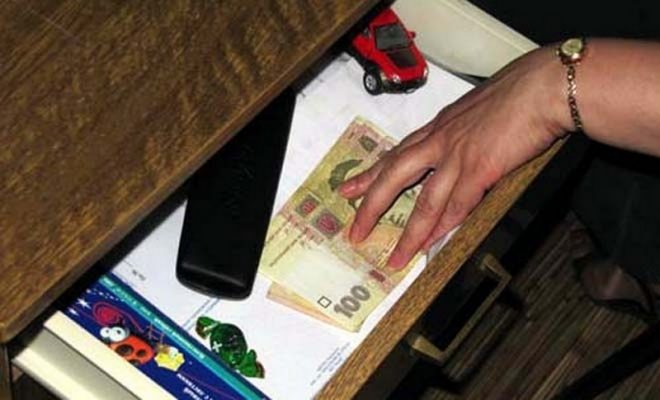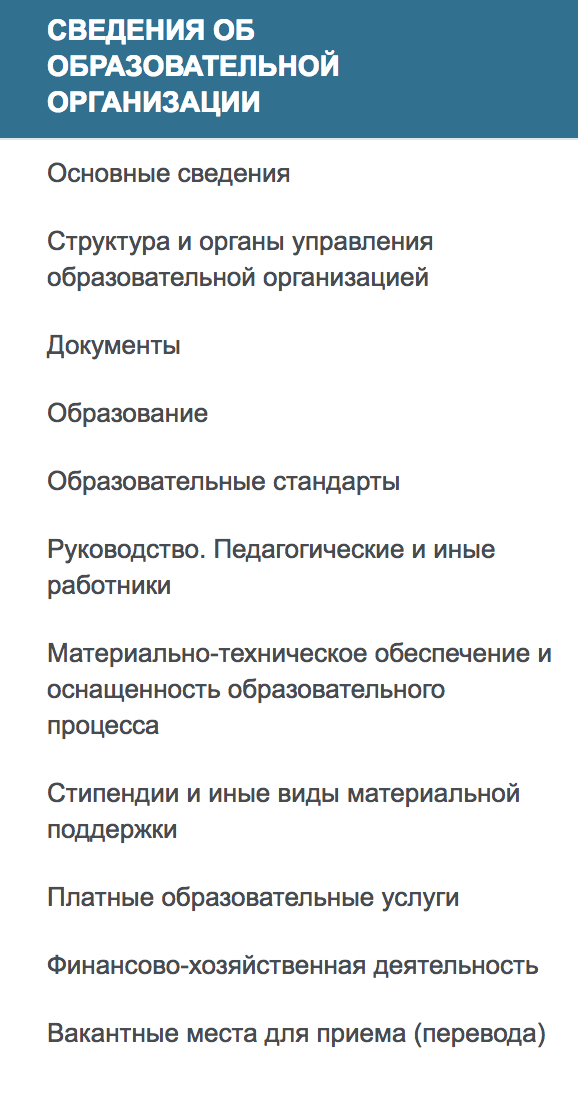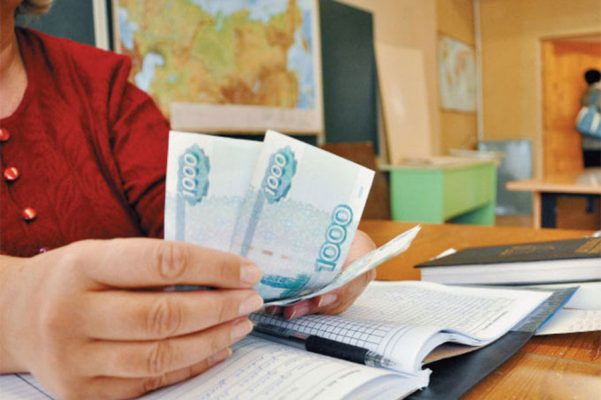When sending a child to school, we do not think about the fact that he could become a hostage there. Hostage to the greed of morally unscrupulous educators.
A new school year means new students, whose parents are obliged to provide them with an education. They have money, but there is no particular choice of schools near their home, so extortion from teachers will continue. As usual, parents will be faced with a financial question: do they need to pay for classroom repairs, school security, or the purchase of textbooks or furniture?
The answer is simple - of course not.
What do schools ask for money for: legal or not?
Parents are faced with additional financial fees already in kindergartens, and then in schools. But in all post-Soviet states, including Russia and Ukraine, free school education is legally guaranteed. In practice, this “free” sometimes costs a lot.
They collect for everything: textbooks, notebooks, manuals, repairs, computer labs, ballet classes, plumbing, gifts for teachers, payment for security guards, payment for cleaners, school holidays and for everything else that the imagination can handle.
The slogan of all extortions is the same: “But this is for YOUR children!” The most difficult thing is to determine whether parental money will benefit the child, or will make life easier and replenish the wallets of school employees.
Money for the cleaning lady
If parents are required to pay for the work of cleaners, this is illegal and is immediately subject to objections and complaints to certain authorities. Local budgets in Ukraine and federal budgets in Russia include an amount for remuneration of technical workers in schools. Dot. Parents are not required to provide any additional payments or bonuses for “sparkling cleanliness,” “new rags,” or “school grounds.”
Money for gifts for teachers
Teachers in both countries are prohibited by law from accepting money from parents. Any amount of money accepted by a teacher can be regarded as a bribe. The exception is cases when a formal agreement has been concluded between the school and the parent for the provision of additional services, but even in this case it is better to provide for payment through a bank. All financial issues must be resolved by the parent committee elected at the meeting.
Not only money, but also any gift can be regarded as a bribe. So, in Art. 368 of the Criminal Code of Ukraine states that a bribe can be considered a thing, a voucher, the right to paid services - in a word, anything that has value. The article of the law does not establish a lower limit for the cost, i.e. Even a penny pen can be considered a bribe. There are similar provisions in the legislation of the Russian Federation. Therefore, gifts to teachers, especially expensive ones, look ambiguous from the point of view of the law.
Parent committee activists should take this nuance into account when planning presentations for teachers. And even more so, it is worth taking into account the difference in the income of students’ families. The most correct decision today is to refuse any significant gifts.
A teacher (or kindergarten teacher) does his job, for which he is paid a salary. Low, this is a well-known fact. But this problem should be solved not by the students’ parents, but by the state. And the gratitude that activists so often talk about can be expressed with a bouquet of flowers.
An increasing number of teachers themselves warn the class that they do not accept gifts of any kind. This position inspires respect, and it also eliminates possible unpleasant situations with complaints.
Food for thought: according to Russian and Ukrainian legislation, both the receiver and the giver are responsible for a bribe.
Money for educational materials
Notebooks and textbooks, which are financed by the state budget, do not need to be paid for - this is a violation of the rights of both parents and children. You may be asked to pay the cost of manuals that are not included in the standard school curriculum, but provide additional useful knowledge. This is not a violation, unless the collection of money is carried out on a voluntary-compulsory basis.
Money for repairs
A fact from the life of parents: an acquaintance complained that the school management annually asks for money to replace windows in the school. The saga began when his eldest daughter was in third grade. They handed it over until eleven o'clock. Now the eldest daughter is finishing university. The youngest took up the baton. She has three more years to study. New windows have appeared in the school, but not everywhere. There is a suspicion that the parents of these two daughters still have to hand over money.
And no one had the courage to ask the director to show estimates, receipts, contracts with contractors, which indicate the cost of work, materials, and so on.
If the initiator of payment for repairs and purchase of furniture for the classroom/school is the director or class teacher, this is an extortion. You need to record the fact and write a complaint to RONO or the administration. But if the initiative comes from the parents, then they will pay for the repairs themselves and this is not considered a violation.
Let us remind you that contributions for repairs are voluntary, no one should force anyone. And he doesn't force it. They just look askance at those who fail.
What benefits are provided to students?
The modern general education program is designed not only for able-bodied or normal students, but also for students who have certain privileges.
Let us consider in more detail what benefits are provided by the state in secondary schools:
- Free additional classes for certain educational programs for students.
- Extracurricular work with certain categories of students who need additional education.
- Providing free food, which is paid for from public budget funds.
- Activities that help with recovery or rehabilitation for certain groups of students.
- Separate work of teachers in providing physical activity, sections, clubs and physical education classes are free for privileged segments of the population.
Depending on the category of the population to which a particular student belongs, he has the right to claim certain privileges absolutely free of charge.
Disabled children
Children with disabilities who have serious pathologies have the right to apply for free benefits such as meals, additional classes, as well as work with students outside of a general education institution.
As a rule, depending on health deviations, an individual education program is selected.
At the same time, relaxations in academic disciplines are not provided for such a child. Upon completion of school, a general education certificate with all marks is provided.
Currently, disabled children are one of the most problematic issues in the country, since it is not possible to provide them with decent conditions for receiving an education in every locality of the Russian Federation.
Large families
Another category of citizens that receives great incentives from the state are large families, where parents have three or more dependent children.
People from such families have the right to receive free food, as well as discounts when paying for security measures, which are most often paid for by parents.
Additionally, such students are given the opportunity to attend clubs and sections that are present in this educational institution for free.
Also, for various extracurricular activities, they are often given discounts or free tickets to cultural and entertainment events.
What can you donate for?
Neither Russian nor Ukrainian educational institutions have mandatory payments. But there may be situations where the parents themselves may find the additional costs useful.
Tutorials
Basic general education textbooks must be provided to you. But if we are talking about some additional collections of problems or exercises, and the teacher was able to prove their usefulness, it’s up to you to decide. Especially if the purchase will be carried out directly, without any incomprehensible schemes.
Additional educational services
The school can provide electives, courses, subject clubs, individual tutoring, etc. For example, in the Russian Federation this list is regulated by Law No. 273 “On Education in the Russian Federation.” At the same time, a formal agreement on paid services is concluded. No one has the right to force your child to attend such courses.
Meals in the school canteen
It's worth thinking about here. Quite often there are complaints about the taste of dishes. But school canteens are under constant control of sanitary and epidemiological stations and other regulatory organizations.
Your child will not be fed stale food here (there are exceptions, but we are not considering emergencies right now). And a hot meal for a schoolchild who doesn’t always have breakfast won’t hurt.
Children holidays
Parents themselves decide where and how the holiday will take place. And this should be decided at a general meeting, and not in a narrow circle. If someone insists on spending that seems excessive to you, don't hesitate to voice your opinion. Without unnecessary emotions, calmly, reasonably, express your point of view, explain why you are against it. Most likely, you will find like-minded people.
Cultural events
Cinema, theaters, excursions, trips - these cannot be free. But they have no right to impose them on you. You can refuse to pay, for example, for a ticket to a football match if your child is not interested in it.
Arguments from the class teacher: “But this is a public event, the whole class should go!” dismiss it right away - in such cases you don’t owe anyone anything. If you think it is necessary, pay, and the child goes to the event. No - you do not hand over the money, but the child does not attend the event.
Closed doors
In Russia, most of the country's young citizens go through kindergarten. Even if parents have the opportunity to leave their baby at home, they do not always do so.
After all, a good kindergarten is a place where a child learns to be part of a team, where everything is subject to a regime that is beneficial for health and development, where there are joint holidays and developmental activities.
Unfortunately, parents are often faced with a situation where their desire to enroll their child in a child care facility is met with a closed door to a kindergarten or nursery. At the same time, it is closed specifically for you, but not for others.
Phrase: “There is no room! Wait your turn!” – quite often serves as a litmus test for corruption in a kindergarten. This is a signal to parents that it is time to pay a bribe. A certain amount of money can change the situation: magically a place for your child is found.
Help whoever can
Problems with enrolling a child in kindergarten are the most striking and common manifestation of corruption in this industry. However, it is far from the only one. What other facts can be attributed to corruption? Often they become:
- Gifts for teachers and management staff.
- Getting ready for the holidays.
- Transfer of funds for the protection of the kindergarten.
- Money for the purchase of toys, manuals, furniture.
- Repair funds, detergents, stationery.
- Voluntary donation to the garden fund upon admission.
The list is not complete, each preschool institution can add something of its own to it - the desire for profit for many managers knows no bounds.
How to deposit money correctly
Unfortunately, public schools cannot boast of an oversupply of funds. And in order to improve learning conditions for their children, parents are ready to help the school. How to do it right?
- Refusal of cash. Each school has its own checking account. Your class can also open a separate account. Any paid school service is drawn up in the form of an agreement indicating all the data of the parent, school and a description of the service provided.
- Transparency and strict reporting of expenses. On the school website, at a school meeting, in the form of printouts - it doesn’t matter how, but it should be possible to see where the money was spent.
You can officially register your support to the school as sponsorship or charity. Thus, in Ukraine one can be guided by the law “On Charity and Charitable Activities”. There are similar legislative acts in the Russian Federation.
Olympics and competitions
Olympiads are held in schools several times a year, in which not only excellent students participate, but all children in general. All these “Russian bear cubs” or competitions in honor of the Year of Ecology are usually paid: you need to pay 50 or 100 R for forms. You don’t have to hand over this money and you don’t have to participate in the Olympiads. That is, the collection cannot be called illegal, but it is also voluntary.
There is no law that would oblige all children to participate in the Olympiad and pay for it. If a teacher says this or threatens with a bad grade, this is a reason to complain or at least sort it out at the level of school management.
Common cheating schemes in schools
There are scammers in education. Many criminal cases have been opened regarding bribes, fictitious employees, and financial fraud in school institutions. In relation to the total number of schools, this percentage is small, but you need to be aware of such cases.

Here is one of the schemes: the school collects money to buy equipment, which is certainly necessary and useful. As a rule, this is something expensive. They actually buy the equipment and demonstrate it at parents’ meetings – everything is great.
But the parents do not know that at the same time an application for financing the same purchase has been submitted to the city authorities. The allocated budget money goes through dummy accounts and is cashed out, going into the pockets of the authors of the scam.
The same scheme can be used to collect money for repairs - repairs are carried out with parents’ money, and budget funds, which are allocated without fail every year, end up in someone’s pockets.
Remember: an educational institution that receives government funding does not have the right to demand that parents pay for repairs or purchase furniture.
School funds that are created also do not guarantee that your money will be used lawfully. It sounds nice, of course, but an uncontrolled fund may well become a convenient cover for fraud.
How much do parents pay and for what?
Buying textbooks, notebooks, curtains, classroom repairs, school renovations, cleaning and security - this is not a complete list of what parents are forced to pay for. Considering that by the beginning of the school year it is also necessary to buy a school uniform, notebooks and stationery, school fees seriously undermine the family budget of parents.
It is believed that the problem of extortion in schools dates back to the 90s of the last century, when “voluntary” contributions from parents were necessary due to critical underfunding of the education sector. Even though school funding is much better now than it was two decades ago, the problem remains. Moreover, the amounts requested have increased many times over.
The scale of the problem is vast. Thus, in 2021, the Public Chamber of the Russian Federation organized a “hotline” on issues of extortion, to which more than a thousand people contacted with complaints in 4 months.
The purposes for which money is raised usually include:
- needs of the school or class - routine repairs, purchase of desks, chalk, detergents;
- payment for security systems – schools purchase turnstiles and pay for the work of security staff;
- purchase of textbooks and workbooks - not all necessary (in the opinion of teachers) textbooks are included in the school curriculum; parents purchase the missing ones;
- payment for meals - free meals are provided only to certain categories of schoolchildren.
On average across the country, school fees vary from 1 to 5 thousand rubles per student per year. As complaints from parents show, in some schools they collect 3 thousand rubles per year for new windows, for teaching aids - 3.5 thousand rubles per year, for the needs of the school and class, respectively, 3 and 2 thousand rubles per six months. Many schools also collect 70-100 rubles a month for cleaning and security services.
But the most unusual case of extortion was noted in the city of Kukmor (Tatarstan) - the school management invited parents to bring 16 kilograms of potatoes or a similar amount of money.
How to deal with extortions
According to the law, you have every right to refuse unnecessary spending. But often the demand for money takes unpleasant forms, including hints that your refusal will affect the child’s academic performance. What to do in this case?
First, find out who the demand is coming from. Quite often situations arise when an overly active parent committee comes up with improvement initiatives at parental expense, and the teacher has no idea about it. Just put them in their place, they are parents just like you. When making demands or threats, start recording video.
The recording will also help when talking about money with the teacher. Demands for money for newspaper subscriptions or cleaning staff must be recorded. If the teacher refers to the director’s requirement, do not hesitate to ask him for clarification, again on the record. Please also remind us that collecting cash is prohibited.
Try to find like-minded people. As a rule, this is the main problem - we know how to be indignant on the sly, but we are afraid to go into open conflict. What if the child’s certificate is spoiled, what if the teachers start to find fault, and what if you still have to communicate with this lady from the parent committee for so many years... If most of the class is indignant, believe me, you have nothing to fear. Stand up for your interests and teach your children to do the same.
As practice shows, such conflicts do not affect relationships between classmates. And if adult participants in the conflict try to put pressure on a child, then it is enough to record this fact on audio or find witnesses in order to hold him accountable for psychological violence.
Audio and video recordings of exactions at school will confirm your complaint. The more people subscribe to it, the more significant it will sound.
Where to complain
- To the departments of education and inspection of educational institutions at the district, city, regional level, up to the Ministry of Education of the Russian Federation or the Ministry of Education and Science of Ukraine.
- To law enforcement agencies: the prosecutor's office, the Ministry of Internal Affairs, departments for combating economic crimes.
- To public organizations, media, online publications.
The law provides for severe punishment for extortion of money, including imprisonment. But there must be good reasons for this. Therefore, do not write complaints based on emotions, try to first understand the situation in the class itself.
Paid services: English, swimming, gymnastics and school preparation
Schools and kindergartens may offer paid services to parents. For example, in a preparatory group, an English teacher will teach children. Or there is a sports section, a dance studio, a swimming coach. This is not included in the curriculum and is not paid for from the budget.
All paid services and their costs are approved by the local administration. Not a teacher, not a teacher, not a director. The list of paid services and prices must be published on the website of the school or kindergarten. This is a required section.

If the regulations say that English classes cost 100 RUR, they cannot charge 250 RUR for them. But if such classes are provided in principle and the child is enrolled in them, you need to pay. It is impossible to demand that a child be admitted to the section for free.
The situation is the same with preparing for school. Parents think that in kindergarten they must carefully prepare their children, teach them to read and write. And then the garden asks for money for it.
To check what a child should be taught for free, you need to find an educational program and curriculum on the website. Such a document must also be made publicly available. There you can see what classes are included in the program and how many there are per week. For example, speech development is provided for according to the standard, but mathematics and writing are not. Then it is paid, but also on a voluntary basis.
If the kindergarten provides oxygen cocktails and vitamins, this is also for a fee, but with your consent.
Other options to avoid extortions
A frank conversation at a parent-teacher meeting with the participation of the class teacher can clarify any misunderstandings that have arisen. And it may well turn out that your point of view is shared by the majority of parents. And together you can find an acceptable way out of such situations. For example, get by with a smaller amount.

Or organize a cleanup day and qualitatively repair all the furniture in the office instead of buying new desks. But if the extortion continues, complain to higher authorities, do not be afraid to disturb the comfort of education officials.
What to do if parents demand money
Any demand, coercion or imposition of services is illegal. If you don't want to give up, no one can force you.
In fact, schools and kindergartens really need help. This is important not for the educational institution itself, but for the comfort of the children. If you don’t want or can’t donate money, offer to participate in labor: paint the fence, wash the windows, help with the delivery of toys, film the holiday. You can fill out a website, make crafts, sew costumes, or repair desks. Or you can do nothing - the child will still study for free.
But it happens that they demand money from parents, they present unaffordable bills every month, and it is unclear what they are spending it on. Then you need to do this:
- Write a statement addressed to the management with a request to explain what these amounts are, on what basis they are demanding them from you and where they are spending them. Keep one copy.
- Contact the Department of Education or Rosobrnadzor. Just don't anonymously, otherwise they won't consider it. A copy of the appeal for yourself. Must respond within a month. If violations are found, the director will be fined. There are hotlines for such complaints in the regions, but this is for consultation only. If you are serious, write a letter.
- Complain to the prosecutor's office or go to court.
Most likely, the claims against you will end at the first stage. But if not, complain. All these measures are expressly provided for by law, and the relevant authorities have sufficient powers to deal with illegal demands.








